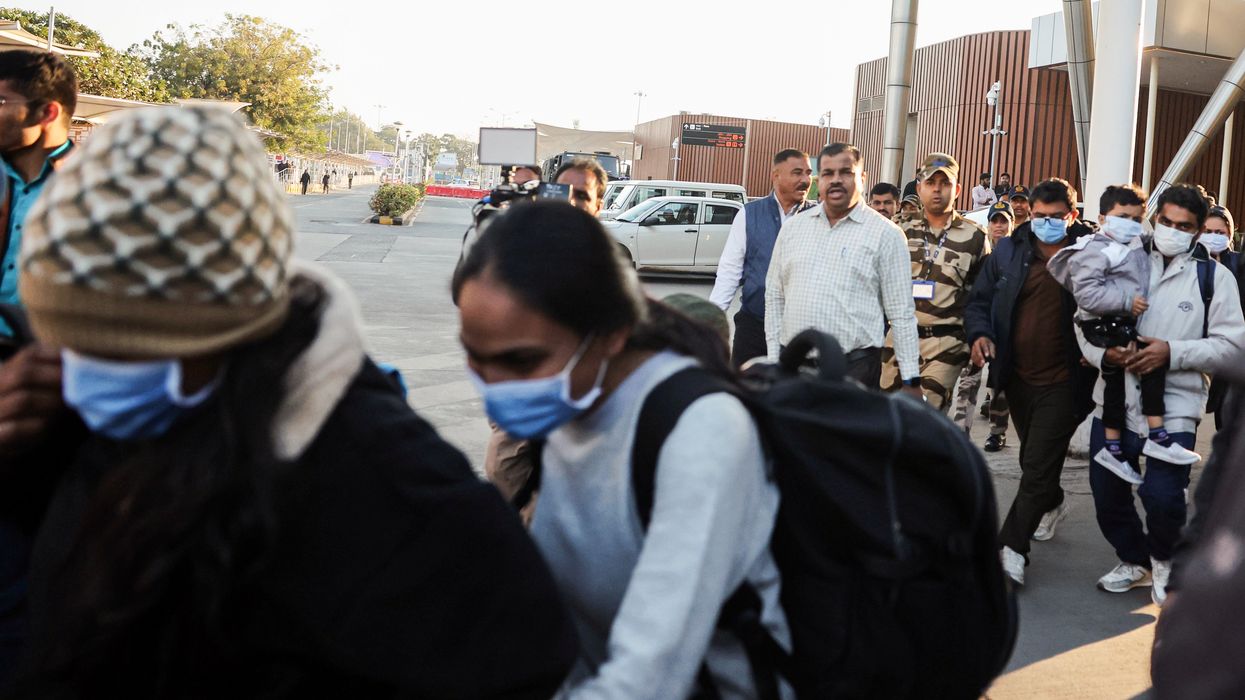A US military transport aircraft, the C-17 Globemaster III, is set to land at Amritsar International Airport on Saturday (15) night, carrying around 119 Indian nationals.
This movement follows the earlier deportation of 104 individuals, marking another phase in the US government's intensified crackdown on undocumented immigrants.
Deportations are expected to continue every other week until all illegal immigrants are returned to their home countries, according to official sources.
The deportees are said to include 67 individuals from Punjab, 33 from Haryana, eight from Gujarat, three from Uttar Pradesh, two each from Rajasthan and Maharashtra, and one each from Jammu and Kashmir and Himachal Pradesh. Their removal is part of an ongoing crackdown by US immigration authorities on individuals who entered the country illegally or overstayed their visas.
The deportations come on the heels of Indian prime minister Narendra Modi's visit to the US, where he met president Donald Trump to discuss key bilateral issues, including immigration. During a joint press conference, Modi reaffirmed India's commitment to repatriating verified Indian nationals while stressing the need to combat human trafficking networks that exploit vulnerable migrants.
The treatment of deported Indians, who arrived in handcuffs and shackles, sparked significant controversy in India. US Immigration and Customs Enforcement (ICE) defends the treatment as a standard security protocol used on deportation flights to prevent escape attempts or disruptions.
Critics, however, argue that the practice is excessive and inhumane, particularly for individuals who have committed no crimes beyond immigration violations.
The issue led to heated debates in the Indian Parliament, with opposition leaders demanding a formal inquiry into the deportation process and the treatment of returnees.
In response to growing concerns, external affairs minister Subrahmanyam Jaishankar has assured that India is engaging with US officials to ensure that deportees are treated with dignity. He stressed that while immigration laws must be upheld, humane treatment should not be compromised.
The Trump administration's strict immigration policies continue to affect thousands of Indian nationals, placing pressure on the Indian government to manage reintegration efforts while addressing the broader challenge of irregular migration.
In the US, ICE oversees deportations, coordinating with the Department of Homeland Security (DHS), while in India, returnees are processed by the ministry of external affairs (MEA), the Bureau of Immigration, and local authorities.
With more deportations expected in the coming months, immigration enforcement remains a key issue between India and the US, as both nations navigate the complexities of border control, human rights, and diplomatic cooperation.
The deportations underscore the broader challenge of irregular migration from India to the US. Economic hardships, limited employment opportunities, and the appeal of better prospects abroad continue to drive many Indians to seek unauthorised entry into the US.
The Indian government now faces the task of reintegrating returnees, many of whom have spent years abroad and may struggle to rebuild their lives back home. As the US tightens its immigration policies, the Indian government is under increasing pressure to curb illegal migration through stronger border management and diplomatic negotiations.
Meanwhile, human rights groups and advocacy organisations continue to push for fairer treatment of deportees, highlighting the balance between border control and humane enforcement.
(PTI)





